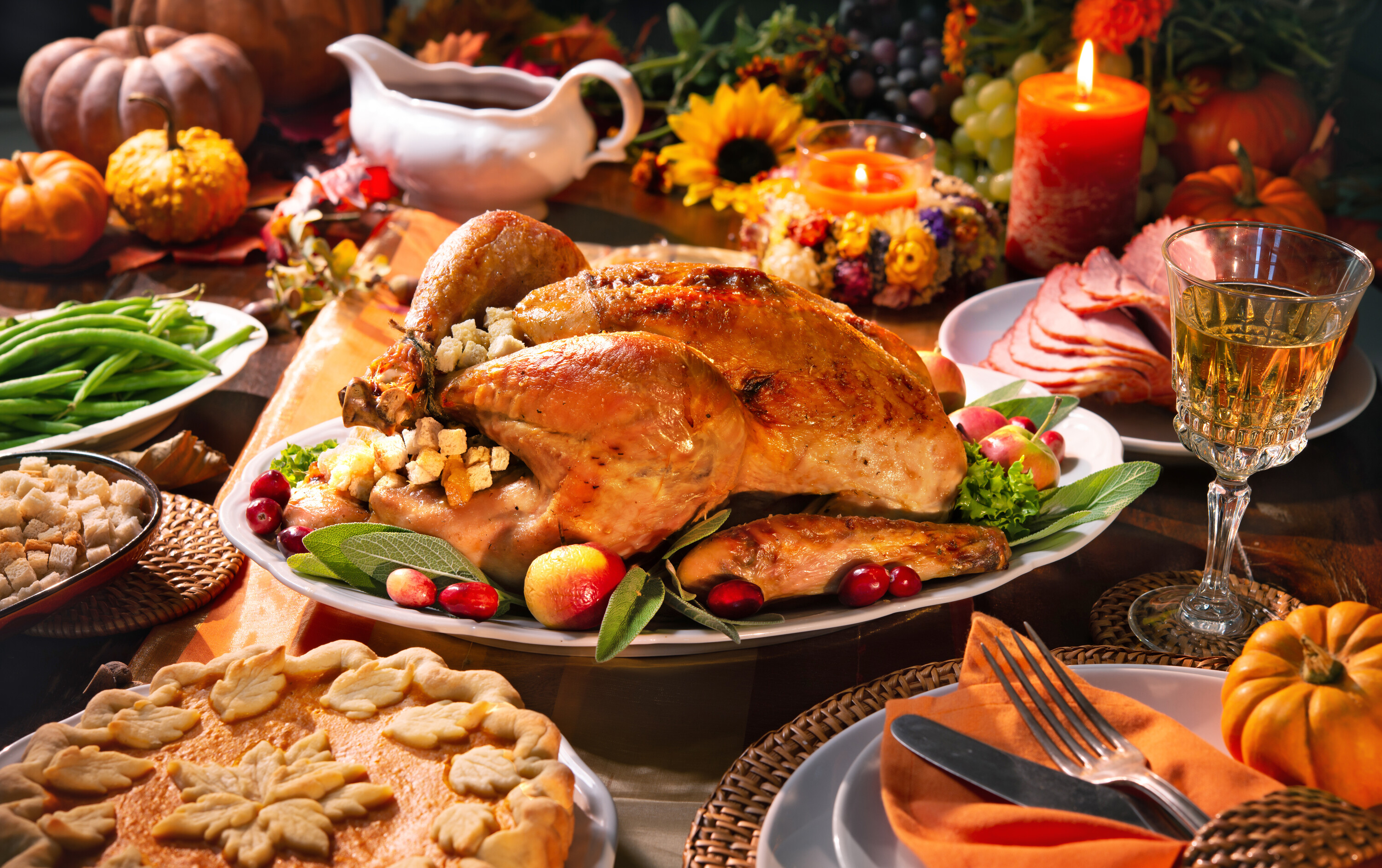Author: Erin Thomson
With Thanksgiving just behind us, and Christmas and other holiday get togethers on the way over the next few weeks, sugary drinks, high carbohydrate foods, and desserts will be all around us. If you have diabetes, you know this all too well.

Diabetes is a chronic health condition that affects how your body turns food into energy. Your body breaks down most of the food you eat into sugar and releases it into your bloodstream. When your blood sugar goes up, it signals your pancreas to release insulin, which acts like a key to let the blood sugar into your body’s cells for use as energy. With diabetes, your body doesn’t make enough insulin or can’t use it as well as it should. When there isn’t enough insulin or cells stop responding to insulin, too much blood sugar stays in your bloodstream. Over time, that can cause serious health problems, such as heart disease, vision loss, and kidney disease.
“It all comes down to portion control when eating decadent meals and treats,” said Lewis Strong, lead dietitian at McLaren Flint. “This means having only one serving or one slice of something. You can learn more about portion sizes and portion control by visiting the American Diabetes Association website or from the McLaren Flint Diabetes Education and Nutrition program. Also, be sure to eat healthy food options before any unhealthy food options. Healthy food options include lean proteins and non-starchy vegetables. A lean protein would be ground sirloin and a non-starchy vegetable would be spinach or romaine lettuce. These types of foods are filling and will help control how much you want to eat.”
When it comes to diabetes, it’s a misconception that avoiding sugar is how you control it. It is true that sugar will increase blood sugar faster, but sugar itself is only one type of carbohydrate. Other types of carbohydrates such as bread flour or potatoes will increase blood sugar too. People with diabetes need to focus on the total carbohydrate content of foods to maintain healthy blood sugar levels throughout the day.
“If a diabetic has too many carbohydrates, their blood sugar will increase, and it may fluctuate up and down significantly throughout the day,” said Strong. “The amount would depend on how many total carbohydrates were in the type of food they ate. They may also experience a crash sometime after consumption from their blood sugar decreasing quickly. Some signs that your blood sugar is high are being very thirsty, urinating more than usual, being very hungry, sleepiness, blurry vision, and infections or injuries healing more slowly. High blood sugar can also make you feel cranky, tired, and have a lack of energy.”
In the last 20 years, the number of adults diagnosed with diabetes has more than doubled as the American population has aged and become more overweight or obese, according to the CDC. Type 2 diabetes accounts for approximately 90 to 95 percent of all diagnosed cases of diabetes; type 1 diabetes accounts for only approximately 5 to 10 percent, which means most cases are caused by obesity and lack of physical activity, which can be controlled and corrected.
Concentrating on food portions and being prepared, especially during the holidays can help keep blood sugar levels in control. Holidays can also bring more stress and increased amounts of alcohol consumption, so it’s vital to manage these.
“Stress can increase your blood sugar by releasing hormones that can make your blood sugar rise,” said Strong. “Stress can also make it harder to perform your diabetes care such as forgetting to take medications, avoiding exercise, and eating too much or too little. Some stress management tips include only doing one thing at a time, praying or meditating, talking to someone, setting limits on what you will do for others, and joining a support group.”
Diabetics should have a balance between sweets and alcohol intake especially sugar-filled mixed drinks. Alcohol can impact your blood sugar hours after consumption, and it increases your risk of having a low blood sugar episode. The degree it impacts blood sugar will depend on the amount of alcohol consumed.
One more element of the holidays to factor in is any travel plans, as many people plan trips to celebrate with family and friends. When you travel, it’s really important to plan ahead to keep your blood sugar levels under control.
“I suggest packing easy to transport snacks such as meal replacement bars, nuts or seeds, nut butters, cheese sticks, fruit, and jerky,” said Strong. “This way one can avoid getting too hungry. When we get too hungry, it makes it harder for us to make healthy food choices. You can also use the internet to check for healthy places to eat around you when you are traveling. These days you can usually find at least one. There are also a lot of meal delivery services available.”
Diabetics can still enjoy the holidays and all the decadency that comes along with it. Be sure to watch your carbohydrate intake, maintain proper portion control, and plan ahead to decrease stress. For more information on diabetes and nutrition management, contact McLaren Flint’s Diabetes Education and Nutrition program here.